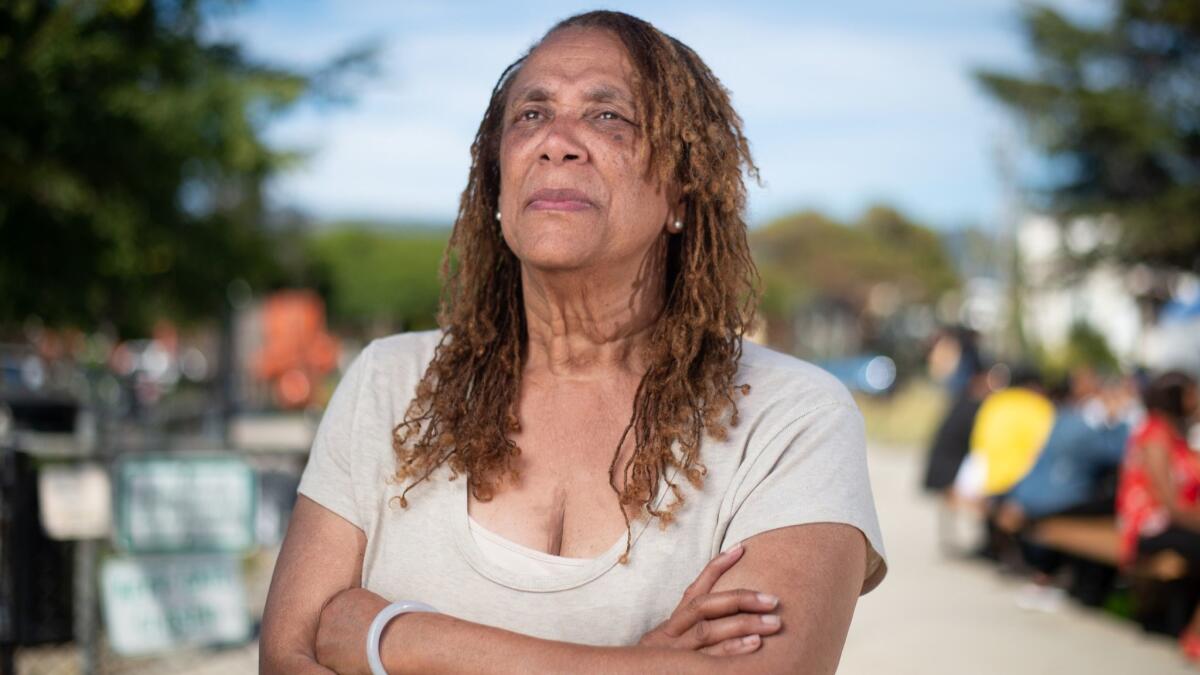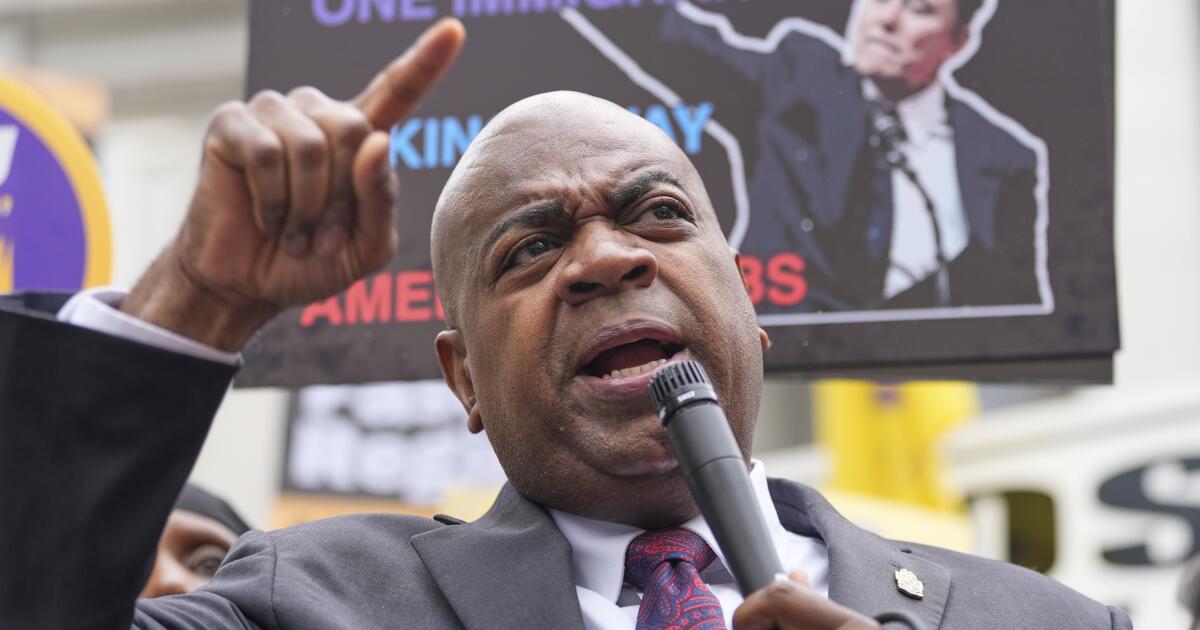Environmentalists ask justices to restore rooftop solar incentives
The California Public Utilities Commission failed to abide by state law when it slashed financial incentives for residential rooftop solar panels in 2022, environmental groups argued before the California Supreme Court Wednesday.
The commission’s policy, which took effect in April 2023, cut the value of the credits that panel owners receive for sending power they don’t need to the electric grid by as much as 80%.
In arguments before the court, the environmental groups said the decision has stymied efforts to get homeowners and businesses to install the climate-friendly panels.
The commission violated state law, the groups argued, by not considering all the benefits of the solar panels in its decision and by not ensuring that rooftop solar systems could continue to expand in disadvantaged communities.
More than two million solar systems sit on the roofs of homes, businesses and schools in California — more than any other state. Environmentalists say that number must increase if the state is to meet its goal set by a 2018 law of using only carbon-free energy by 2045.
On the other side of the courtroom battle were lawyers from Attorney General Rob Bonta’s office, arguing that the commission’s five members, all pointed by Gov. Gavin Newsom, had followed the law in making their decision.
In briefs filed before Wednesday’s oral arguments, the government lawyers sided with those from the state’s three big for-profit electric utilities — Southern California Edison, Pacific Gas & Electric and San Diego Gas & Electric.
Mica Moore, deputy solicitor general, said at the hearing in downtown Los Angles that the credits given to the rooftop panel owners on their electric bill have become so valuable that they were resulting in “a cost shift” of billions of dollars to those who do not own the panels. This was raising electric bills, she said, especially hurting low-income electric customers.
The credits for the energy sent by the rooftop systems to the grid are valued at the retail rate for electricity, which has risen fast as the commissioners have voted in recent years to approve rate increases the utilities have requested.
The environmental groups and other critics of the commission’s decision have argued that there is no “cost shift.” They say that the commission failed to consider in its calculations the many benefits of the rooftop solar panels, including how they lower the amount of transmission lines and other infrastructure the utilities need to build.
“The cost shift narrative is a red herring,” argued plaintiff’s attorney Malinda Dickenson, representing the Center for Biological Diversity, the Environmental Working Group and the Protect Our Communities Foundation.
Moore countered by saying the commission doesn’t have to consider all the possible societal or private benefits of the rooftop panels.
For example, even though the rooftop panels could result in conserving land that was otherwise needed for industrial scale solar farms, the government lawyers argued in their brief, the commission was not obligated to consider that value in its calculation of the amount of costs the rooftop panels shift to other customers.
The government lawyers also said the commission had created other programs beyond the electric bill credits to help disadvantaged communities afford the solar systems.
The utilities have long complained that electric bills have been rising because owners of the rooftop solar panels are not paying their fair share of the fixed costs required to maintain the electric grid.
During the oral arguments, the seven justices focused on a legal question of whether a state appeals court erred when it ruled in January 2024 against the environmental groups and said that the court must defer to how the commission interpreted the law because it had more expertise in utility matters.
“This deferential standard of review leaves no basis for faulting the Commission’s work,” the appeals court concluded in its opinion.
The environmental groups argue the appeals court ignored a 1998 law that said the commission’s decisions should be held to the same standard of court review as those by other state agencies.
Moore told the seven justices that the appeals court had made the correct decision to defer to the commission.
Not all justices seemed to agree with that.
“But we’re pretty good about figuring out what the law says,” Associate Justice Carol Corrigan said to Moore during the proceeding. “Why should we defer on that to the commission?”
The justices will weigh the arguments made by both sides and issue a decision in the next 90 days.
The big utilities have for decades tried to reduce the energy credits aimed at incentivizing Californians to invest in the solar panel systems that can cost tens of thousands of dollars. The rooftop systems have cut into the utilities’ sale of electricity.
On another front, the state’s three big utilities are now lobbying in Sacramento to reduce credits for Californians who installed their panels before April 15, 2023. The commission’s decision in 2022 left the incentives in place for those panel owners for 20 years after their purchase.
Early this year, Assemblywoman Lisa Calderon (D-Whittier), a former Southern California Edison executive, introduced a bill that would have ended the program for all solar owners who installed their systems by April 2023 after 10 years. In face of opposition and protests by solar owners, Calderon amended the bill so it would end the program — where credits are valued at the retail electric rate — only for those selling their homes.
Calderon said the bill would save the state’s electric customers $2.5 billion over the next 18 years.
On Monday, Roderick Brewer, an Edison lobbyist, sent an email to Assemblymembers, urging them to vote for the bill known as AB 942. “Save Electricity Customers Billions, Promote Equity,” he urged in the email.
The Assembly voted 46 to 14 to approve the bill on Tuesday night, sending it to the state Senate for consideration.
The timing of the vote surprised opponents of the bill. They expected a vote late this week because of rules that allow more time for bills to be reviewed after they are amended. Calderon amended the bill late Monday.
Nick Miller, a spokesman for Assembly Speaker Robert Rivas, said Calderon had asked for a waiver of the rules so that it could be voted on Tuesday night.
Such waivers, Miller said, are “not uncommon.”



















